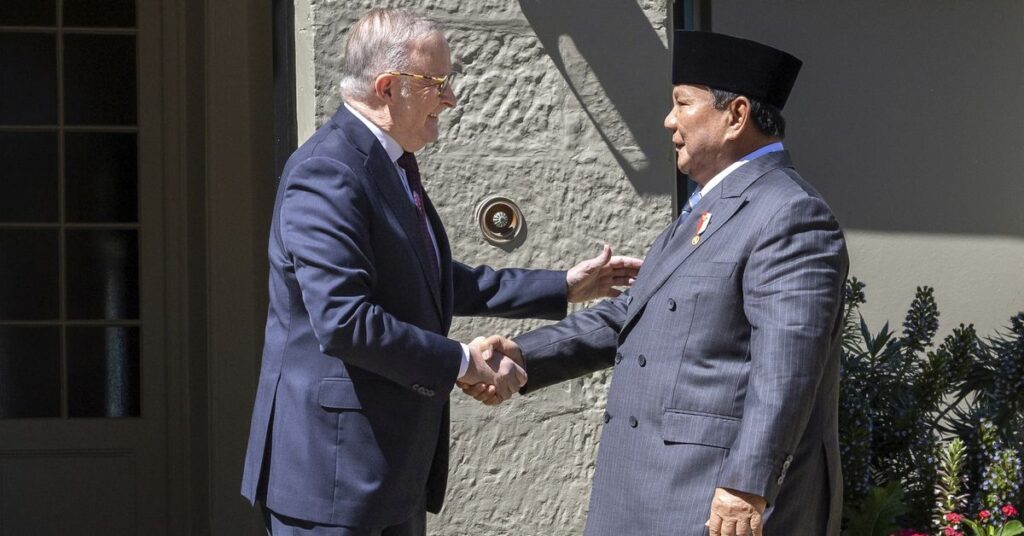
Australia and Indonesia are poised to sign a significant defence treaty early next year, marking what Prime Minister Anthony Albanese has called a “historic” moment. The announcement was made during a joint appearance with Indonesian President Prabowo Subianto in Sydney, where Albanese confirmed that negotiations on the deal are nearing completion.
The treaty, expected to be formally signed in January, aims to strengthen the security relationship between the two nations. “This treaty will commit Australia and Indonesia to consult at a leader and ministerial level on a regular basis on matters of security, to identify and undertake mutually beneficial security activities,” Albanese stated. “And if either or both countries’ security is threatened, to consult and consider what measures may be taken either individually or jointly, to deal with those threats. This is a watershed moment.”
Strategic Implications of the Treaty
The agreement represents a significant shift in regional security dynamics, particularly as Indonesia, the world’s fourth-largest country by population, has historically maintained a non-aligned stance. Despite increasing geopolitical tensions, Indonesia has balanced its relationships with Western nations and Russia. The new treaty with Australia underscores Jakarta’s strategic pivot towards strengthening regional alliances.
Indonesia has been enhancing its military capabilities through deals with countries like France and the United States, while simultaneously engaging in military exercises with both Russia and Australia. Notably, last year, Indonesia conducted its first-ever bilateral military drills with Russia, coinciding with separate exercises with Australia.
Building on Past Agreements
According to Albanese, the new treaty will build upon previous agreements between Canberra and Jakarta, further solidifying their partnership. “This treaty represents a major extension of our existing security and defence cooperation,” he said. “It shows the relationship is as strong as it has ever been, and that’s a great thing for our region and for the people of both Australia and Indonesia.”
President Subianto echoed the sentiment, emphasizing the importance of strong regional ties. “In the Indonesian culture, we have a saying, when we face an emergency, it is our neighbour that will help us,” he remarked. “Maybe our relatives will remain far away, but our neighbours are the closest and only good neighbours will help each other.”
Regional Context and Future Prospects
This development follows Australia’s recent formal military alliance with Papua New Guinea, signaling Canberra’s proactive approach to regional security. The new treaty with Indonesia is expected to enhance collaborative efforts in addressing shared security challenges, from maritime security to counter-terrorism.
Experts suggest that the treaty could serve as a model for future regional security frameworks, potentially influencing other Southeast Asian nations to pursue similar agreements. The move represents a strategic alignment that could redefine power dynamics in the Asia-Pacific region.
As the signing date approaches, both countries are expected to outline specific areas of cooperation and joint initiatives. The treaty not only reflects a deepening of bilateral ties but also highlights the evolving nature of security alliances in response to global and regional shifts.
With the treaty set to be signed in January, the focus will now be on its implementation and the tangible benefits it will bring to both nations. The agreement is poised to enhance stability and foster a more secure environment in the Asia-Pacific, benefiting not only Australia and Indonesia but the wider region.







